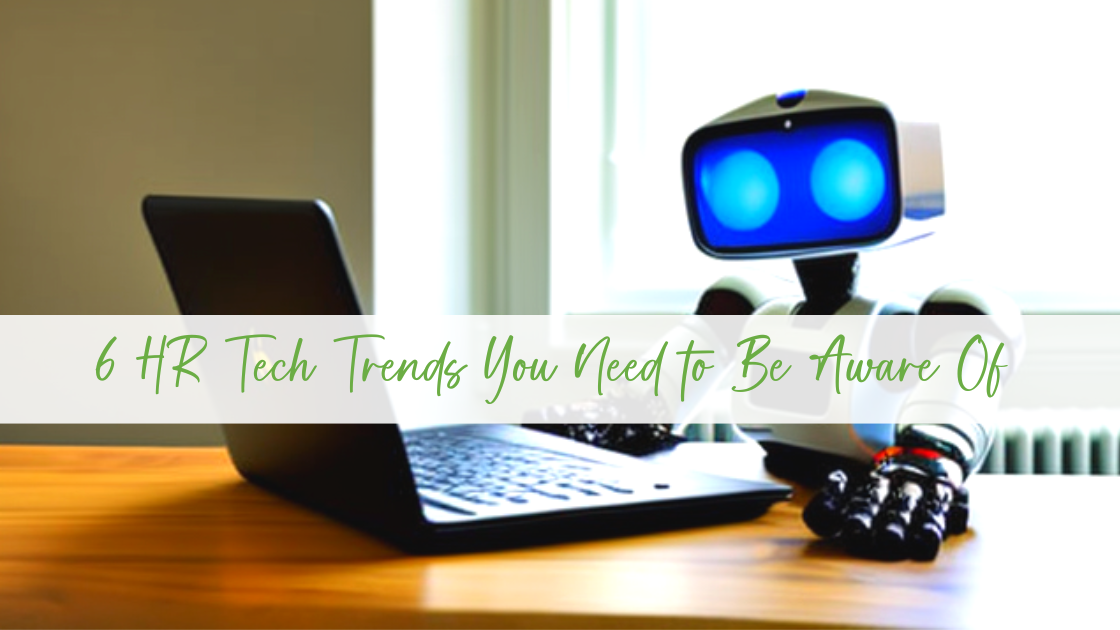Drop off your CV
We serve the global HR community through our offices located in Delhi, Hong Kong, London, New York, São Paulo and Singapore and have placed HR leaders in over 30 countries.
HR tech has come a long way in recent years, with the development of innovative tools that h...

HR tech has come a long way in recent years, with the development of innovative tools that help HR professionals improve their work efficiency and employee experience. The latest HR technology trends focus on leveraging Artificial Intelligence (AI), Machine Learning (ML), and Automation to streamline HR processes, enhance employee engagement, and create a more agile and resilient workforce.
Let's explore some of the latest technology trends that are transforming the HR landscape:
AI in HR
We’ve all seen the current buzz around AI with the rise of intelligent platforms such as ChatGPT and those which create art; the image for this blog was AI-generated in Canva.
AI is also becoming increasingly popular in HR, and for good reason. AI-powered HR tools can automate repetitive tasks, minimize human error, and provide insights that are beyond human capabilities. With AI-powered recruiting and onboarding tools, HR teams can easily screen resumes, conduct initial interviews, and schedule interviews with top candidates.
AI can also help HR teams manage employee engagement and performance. Chatbots, for example, can answer employees' frequently asked questions, reducing the time HR teams spend on repetitive tasks. AI algorithms can also analyse employee performance data to identify patterns and trends, helping managers to develop customized training programs and coaching sessions.
ML in HR
ML is another technology that is making significant strides in HR. ML can go through large amounts of data, identify patterns, and make predictions based on that data. With ML, HR teams can leverage data-driven insights to make better decisions, from hiring the right candidate to identifying top-performing employees.
ML algorithms can also look at employee data and identify areas where they are struggling and might need additional support. With this information, HR teams can develop targeted learning programs to help employees improve their performance.
Automation in HR
Automation is a key technology trend that is transforming the HR landscape. With automation tools, HR teams can automate repetitive tasks, such as data entry, payroll processing, and benefits administration. This helps HR teams save time and focus on more strategic tasks, such as talent management and employee engagement.
Automation also enables HR professionals to provide employees with a more personalized experience. With self-service portals and chatbots, employees can easily access information about their benefits, pay, and performance, reducing the time spent on administrative tasks.
Gamification in HR
Gamification is a trend in HR technology that leverages game mechanics to enhance employee engagement and learning. With gamification tools, HR teams can create interactive learning experiences that employees find engaging and enjoyable.
Gamification tools can also be used to encourage employees to take on new challenges and improve their skills. For example, they can create leaderboards that track employee progress and reward top-performing employees with incentives, such as gift cards or extra vacation days.
Virtual and Augmented Reality in HR
Virtual and Augmented Reality (VR/AR) technologies are also making significant strides in HR tech. With VR/AR, HR can create immersive training experiences that simulate real-world scenarios, giving employees the opportunity to practice and develop new skills in a safe, controlled environment.
VR/AR technologies can be used to create virtual tours of the workplace as well, enabling remote employees to experience the company’s culture and workspace. This can help remote employees feel more connected to their colleagues and the company.
Data Analytics in HR
Data analytics is yet another trend that is transforming HR. With data analytics tools, HR teams can analyse large amounts of data to gain insights into employee performance, engagement, and retention. This can help to identify areas where improvements are needed and develop data-driven solutions to address those issues.
Data analytics can be used to monitor employee sentiment and identify potential issues before they become significant problems too. By analysing employee feedback data, HR teams can develop targeted solutions to improve employee satisfaction and engagement.
If implemented correctly, the latest HR technology trends will improve HR processes and enhance employee experience. Tools available to organisations today perform beyond human capabilities and can enable a happier, more effective and efficient workforce who will in turn contribute to a business’s success! I would be interested to hear what you already have or will be implementing from the aforementioned into your HR function, you can connect with me on LinkedIn or reach out via pku@elliottscotthr.com